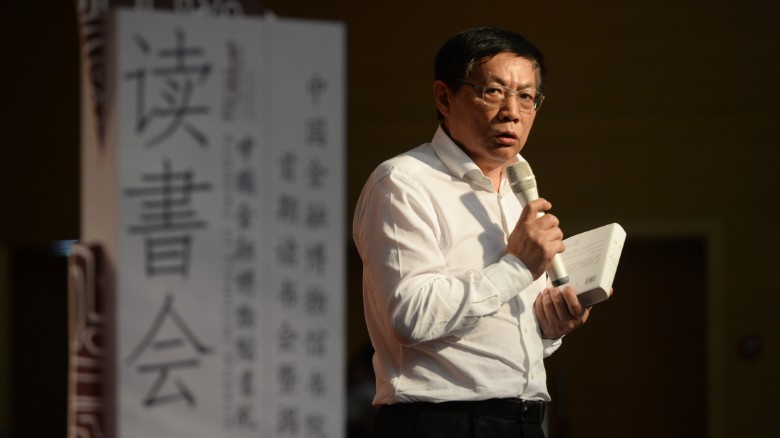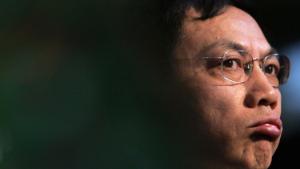Chinese tycoon who criticized Xi Jinping's handling of coronavirus jailed for 18 years
A Chinese billionaire who criticized President Xi Jinping's handling of the coronavirus pandemic has been jailed for 18 years on corruption charges, a court said Tuesday.
Ren Zhiqiang, a retired real-estate tycoon with close ties to senior Chinese officials, disappeared in March after he allegedly penned a scathing essay that month criticizing Xi's response to the coronavirus epidemic. He was later charged with corruption-related offenses.

Ren Zhiqiang, a former real estate tycoon and outspoken government critic.
On Tuesday, a court in Beijing found Ren guilty on multiple charges, including embezzling some $16.3 million (110.6 million yuan) in public funds, accepting bribes, and abuse of power that caused losses totaling $17.2 million (116.7 million yuan) for the state-owned property company that he once headed.
Judges sentenced him to 18 years in prison and imposed a fine of $620,000 (4.2 million yuan). The court said he "voluntarily confessed all of his crimes" and "was willing to accept the court's verdict after all of his illegal gains were recovered."
China's court system has a conviction rate of around 99%, according to legal observers, and corruption charges are often used to go after Communist Party insiders who fall afoul of the leadership.
Ren's conviction and heavy sentence appears designed to send a message to other members of the Chinese elite that any public criticism or defiance of Xi will not be tolerated, as Beijing continues to deal with the fallout of the pandemic and faces intense international pressure from Washington and others.
'The Cannon'
Born into the Communist Party's ruling elite, the 69-year-old Ren had often been outspoken on Chinese politics, far more than is usually allowed in the authoritarian state.
His forthrightness earned him the nickname "The Cannon" on Chinese social media.
In the essay published in March, widely attributed to Ren, the author lashed out at the party's crackdown on press freedom and intolerance of dissent. While the essay did not mention Xi by name, it obliquely referred to the country's top leader as a power-hungry "clown."
"I saw not an emperor standing there exhibiting his 'new clothes,' but a clown who stripped off his clothes and insisted on continuing being an emperor," Ren allegedly wrote of Xi's address to 170,000 officials across the country at a mass video conference on epidemic control measures on February 23.
The essay went on to accuse the Communist Party of putting its own interests above the safety of the Chinese people, to secure its rule.
"Without a media representing the interests of the people by publishing the actual facts, the people's lives are being ravaged by both the virus and the major illness of the system," Ren allegedly wrote.
Soon after the essay was published online, Ren disappeared, and relatives feared he had been detained. Authorities confirmed Ren was being investigated on corruption related charges in early April, and expelled the longtime member from the Communist Party in July, paving the way for his criminal prosecution.
This is not the first time Ren ran afoul of the Chinese leadership for speaking his mind.
In 2016, he was disciplined after questioning on social media Xi's demands that Chinese state media must stay absolutely loyal to the party. He was put on a year's probation for his party membership and his wildly popular account on Weibo, China's Twitter-like platform, was shuttered.
This time, however, there appears to be no second chance for Ren. If he serves his full sentence, he will be in his late 80s by the time he is released.
CNN's James Griffiths, Nectar Gan and Ben Westcott contributed reporting.











